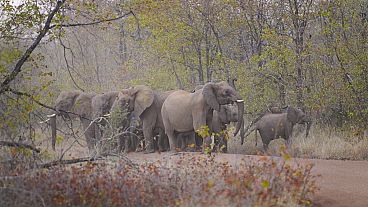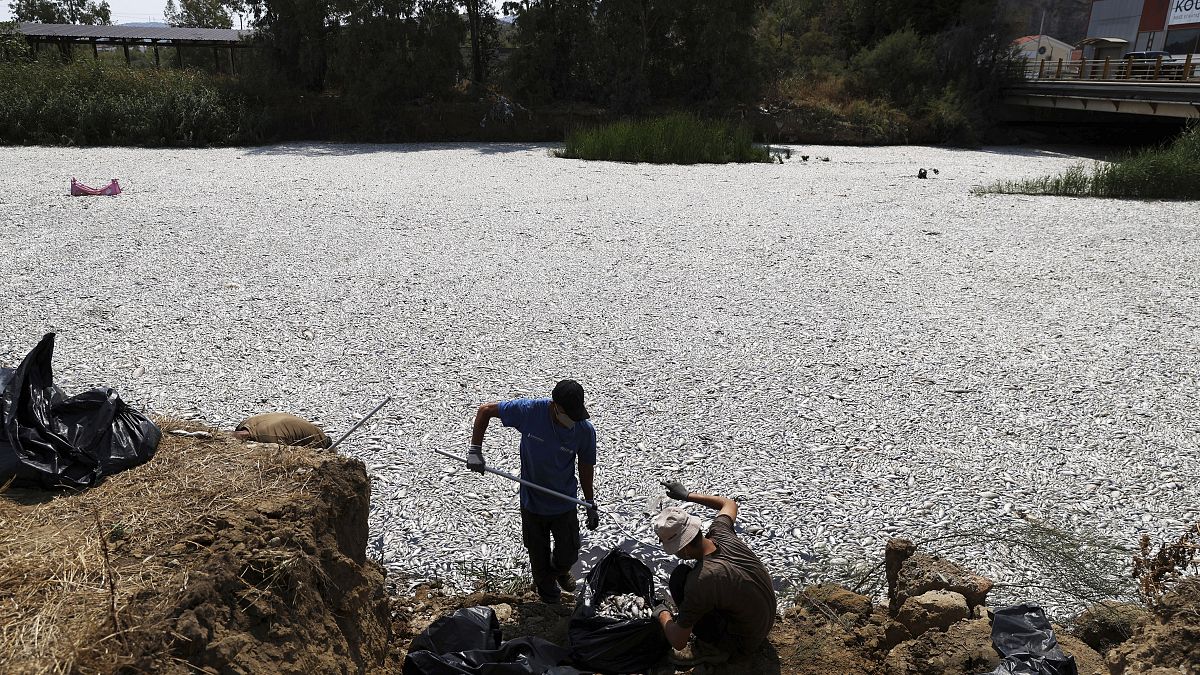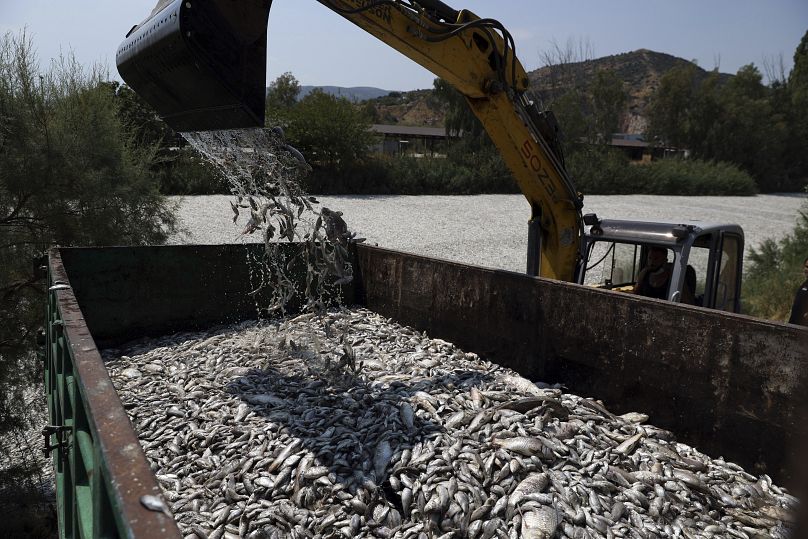The dead freshwater fish filled both Volos bay and nearby rivers on Tuesday after they were displaced from their normal habitats by flooding last year.
Greek authorities have announced a series of measures to support local businesses after more than 100 tonnes of dead fish were carried by floodwater into the central port of Volos.
According to a joint statement by the Ministries of Economy and Finance, Health, Environment and Energy, Labour and Social Security, Climate Crisis and Civil Protection, the raft of measures include subsidies for businesses who have experienced a loss of turnover.
Tax and insurance payments will also be suspended and the 'Thessaly Pass' will be activated, a scheme which aims to promote regional tourism.
Additionally, the local government will look into ways to fund a comprehensive programme for the promotion of the local area.
The dead freshwater fish filled both Volos bay and nearby rivers on Tuesday after they were displaced from their normal habitats by flooding last year.
Fishing trawlers were chartered by the regional authorities to scoop the dead fish out of the sea and load them onto trucks where they were taken to an incinerator.
The fish came from Lake Karla in central Greece, a body of water drained in the early 1960s and restored in 2018 to combat the effects of drought.
"We are cooperating with whoever wants to see this phenomenon end as quickly as possible," Anna Maria Papadimitriou, the deputy regional governor of the central Thessaly area, said on Friday.
"The regional governor has declared a state of emergency," she added.
Water levels rose abruptly last autumn during a deadly storm that caused extensive flooding in central Greece but have since receded due to low rainfall in subsequent months and successive heatwaves this summer.
Experts say a net was not placed at the mouth of the river leading into Volos, so when the freshwater fish were carried with the floodwater, they died after coming into contact with seawater.
The mayor of Volos, Achilleas Beos, lashed out at the regional authority, accusing it of acting too slowly. Speaking a press conference he said the stench was unbearable and warned the rotting fish could cause an environmental disaster.
And the city's Chamber of Commerce said it was taking legal action to seek damages after commercial activity in the popular tourist destination dropped by an estimated 80% over three days.
"Businesses along the seafront, particularly in the catering industry, are now suspending operations," the chamber said in a statement.
"A strong stench along the seafront is repulsive to both residents and visitors, delivering a severe blow to tourism in Volos."













